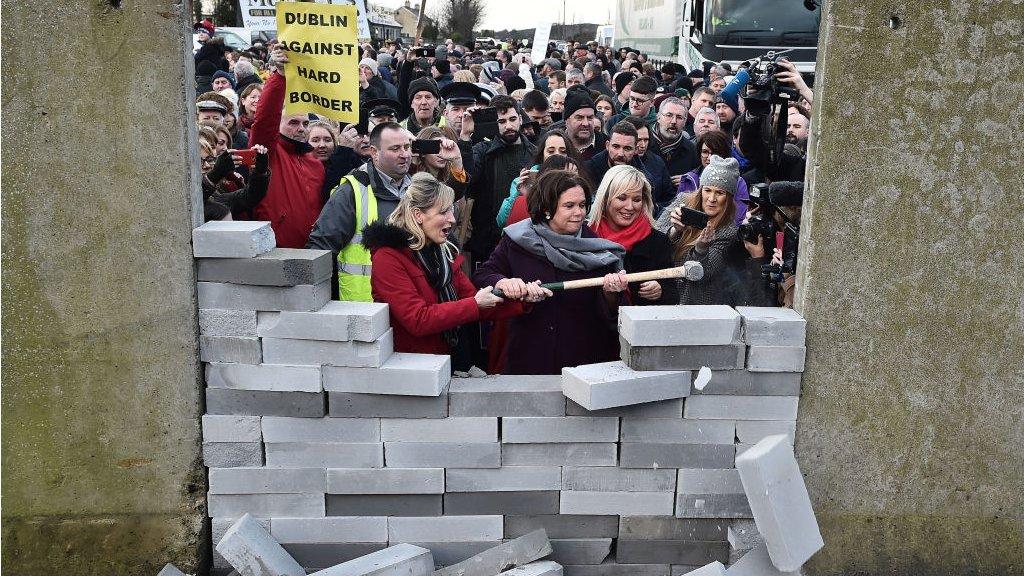Brexit: Nancy Pelosi steps up pressure on UK over Irish border
- Published
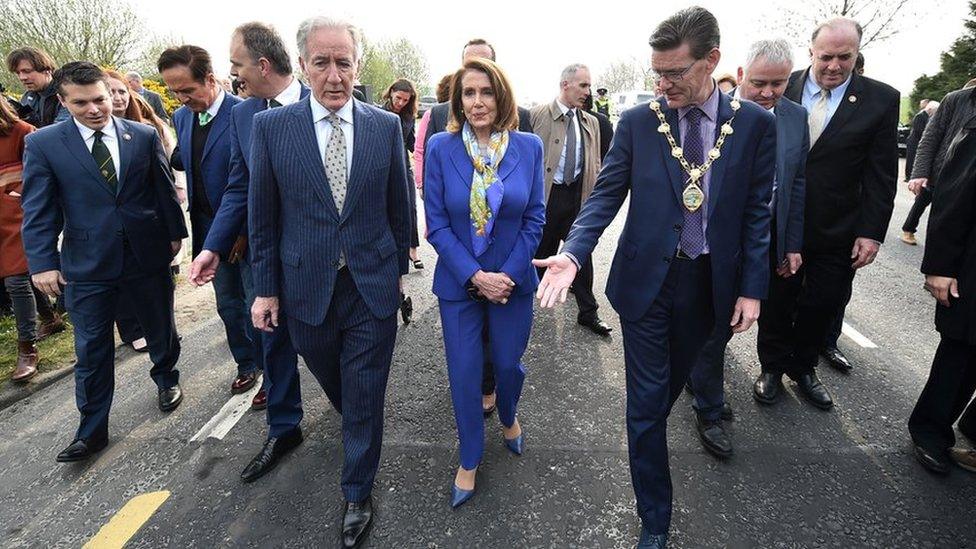
Mayor of Derry, John Boyle, steps over the Irish border with US Speaker Nancy Pelosi
The impact of Brexit on the Irish border was back in the spotlight this week.
The most powerful US Democrat, Nancy Pelosi, visited the border and delivered a stark message.
If the UK's manner of leaving the EU damages the Good Friday Agreement then forget about a US-UK trade deal.
"That's just not on the cards if there's any harm done to the Good Friday accords," she said.
The Irish government is clear that any hardening of the border would amount to harm.
The text of the agreement has little to say about border arrangements but Irish ministers say a harder border would certainly damage the spirit of the agreement.
Mrs Pelosi seems to be on board with that definition.
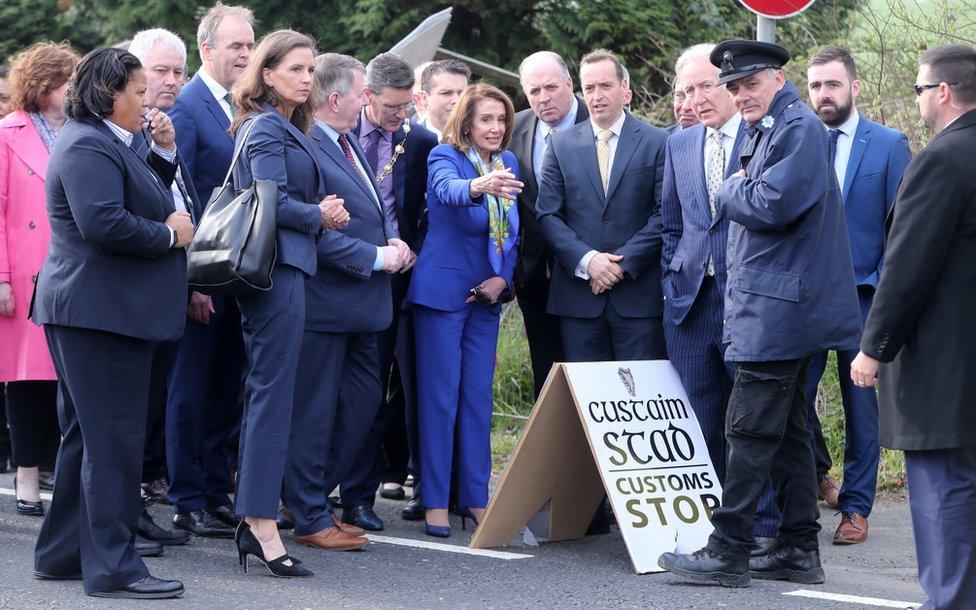
Mrs Pelosi met politicians and anti-Brexit campaigners on the Londonderry/Donegal section of the border
She told an audience at the London School of Economics: "This is not a treaty only, it's an ideal, it's a value, it's something that is a model to the world."
So this was a message to some Brexiteers: if the Irish government is not happy, we will block a trade deal.
A US deal is perhaps the ultimate prize for the free-trading, 'Global Britain' branch of the Brexit movement.
It would demonstrate that Brexit was worthwhile, that it allowed the UK to land big deals as an independent trading nation.
Some of these people also believe that the border issue is largely concocted and that leaving the EU without a deal would not be a problem.
'Stormy meeting'
Mrs Pelosi personally took issue with this notion.
She had a reportedly stormy meeting with members of the pro-Brexit European Research Group of MPs.
There was also a less high-profile visitor in Northern Ireland this week but she also came with an important message.
Karen Wheeler, a senior HMRC official, addressed a Brexit conference in Belfast which had been organised by InterTrade Ireland and other business groups.
Ms Wheeler is director general for Border Co-ordination, a cross-government role concerning everything to do with Brexit and borders.
For some Brexit supporters the solution to the Irish border lies in technology.
That is mainly about the tracking and monitoring of freight which could allow the UK to leave the EU's regulatory orbit but also avoid new checks at the border.
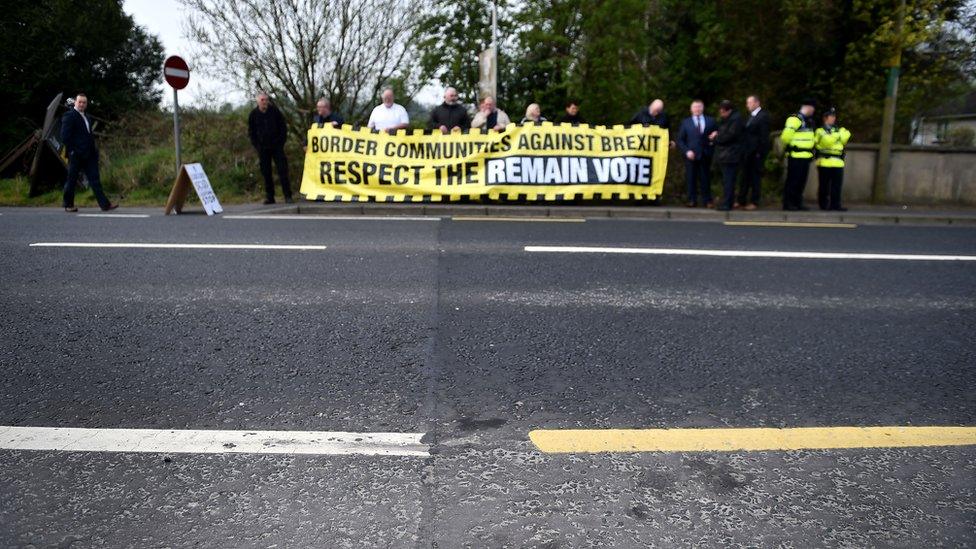
The border between Northern Ireland and the Republic is indicated by a change in the road markings
Ms Wheeler was asked what work HMRC had been doing to find technological solutions for the border.
Her reply betrayed a certain scepticism.
'No such thing'
She agreed that there is technology which provides for a certain level of automated customs processing or tracking of goods.
But she added: "They are not all instantly available.
"Many of them would take years to implement and there is no border in the world which has a full package of all of these technologies.
"There is no such thing in the world at the moment at a land border which doesn't have queues and processes and technologies.
"It may be that over a number of years more of those technologies will emerge. But some of those things are quite hard to avoid."
The idea that any technological solution would be years away also surfaced in a Home Office document seen by the Daily Telegraph and Sky News, external.
The work from the Home Office Policy Unit described a confection of technologies which would not be operational until 2030.
It also points out that for any technological solution to work it would require "agreement and commitment" from the Republic of Ireland.
So ultimately the border issue comes back to politics and diplomacy.
- Published18 April 2019
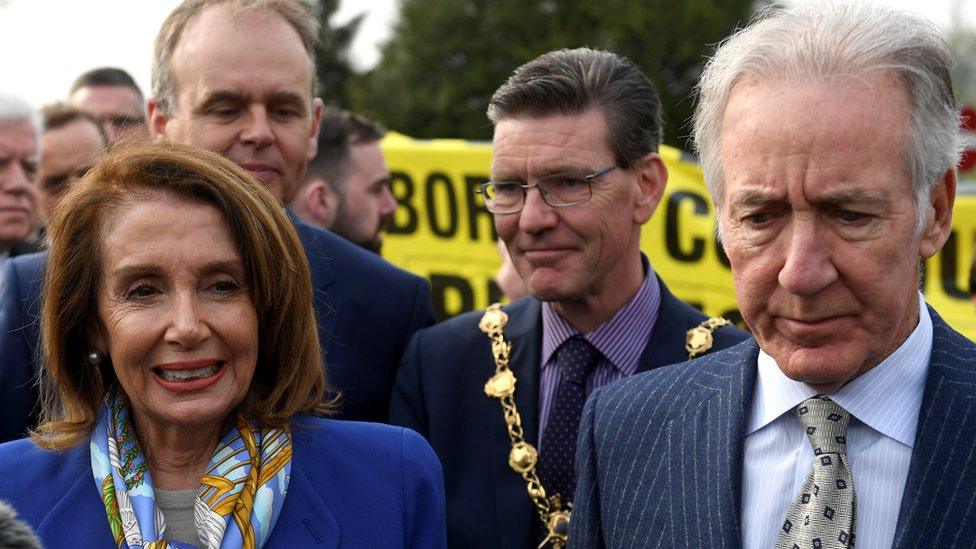
- Published18 April 2019
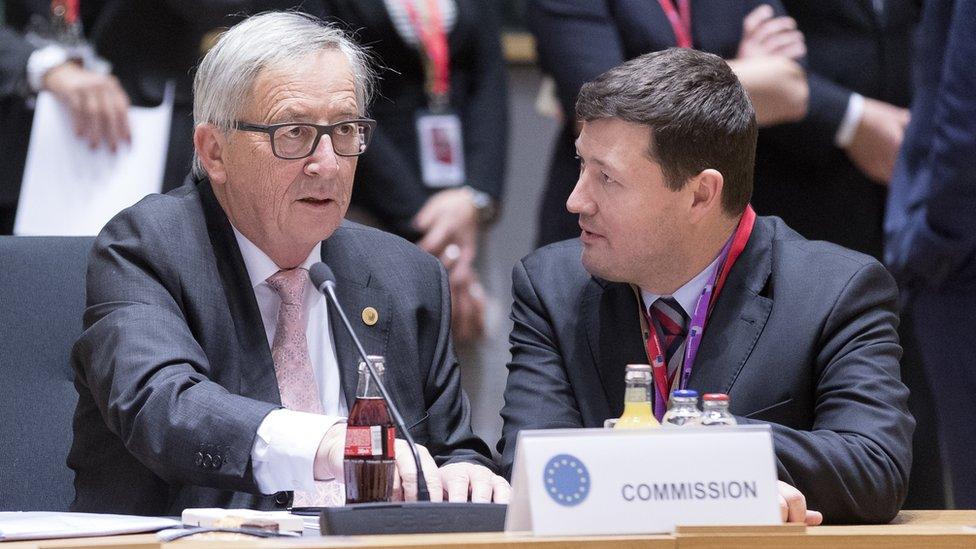
- Published16 October 2019

- Published4 October 2019
